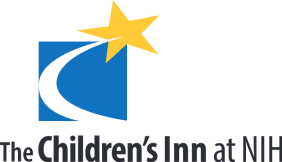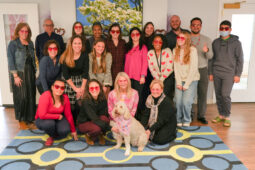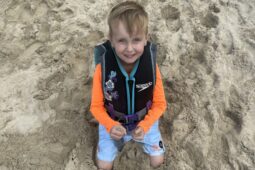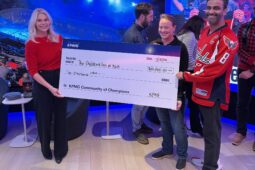The Inn Provides Calm While Study Provides Time
After a close call to get enrolled, a Swedish family continues its search for answers in an NHGRI study targeting GM1 gangliosidosis
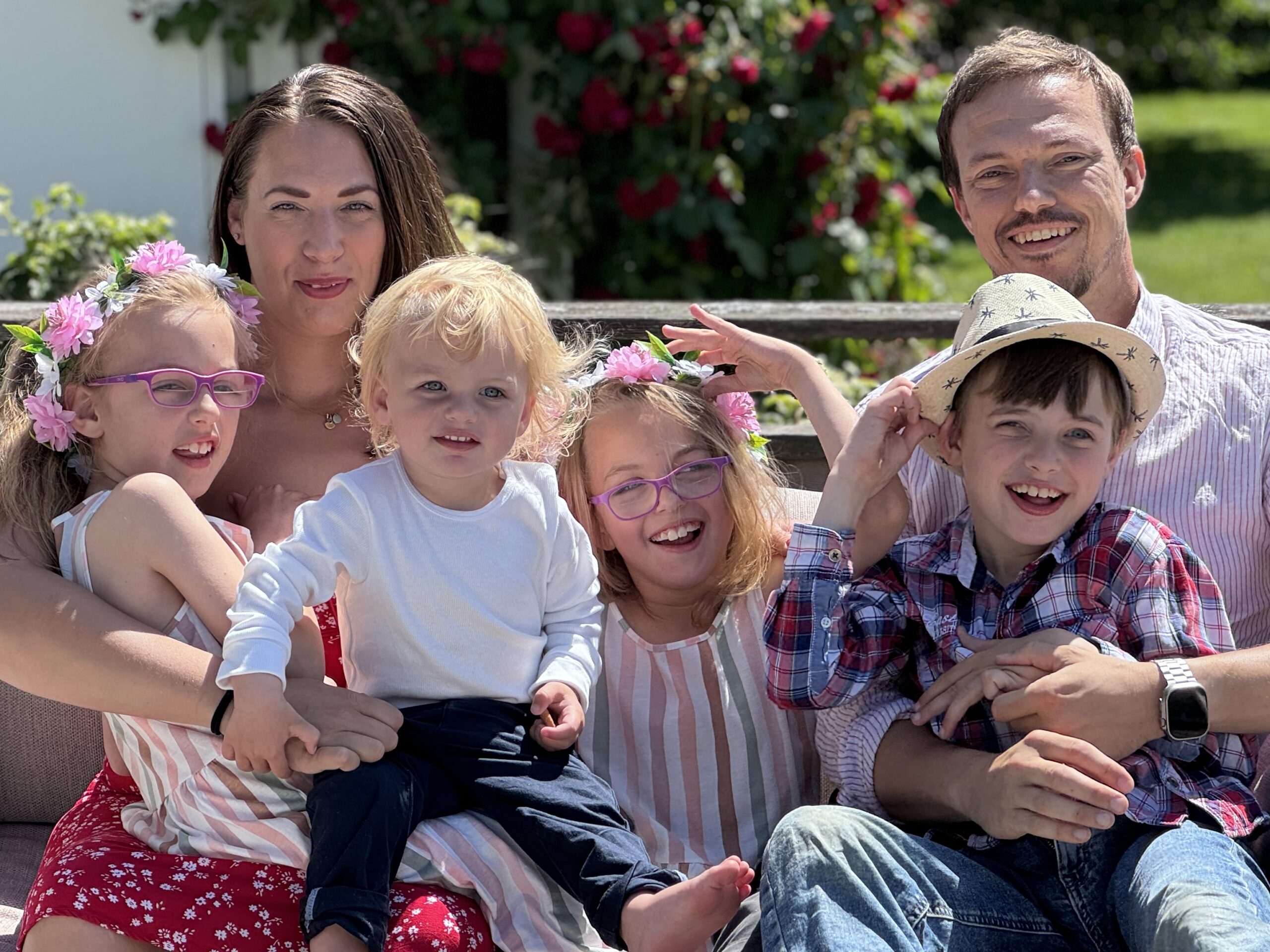
We all know the feeling. Sometimes, life just moves too fast. In those moments, it’s good to have a place where the world slows down and little moments can be savored. For Niclas, Jessica, and their young family, that place has been The Children’s Inn at NIH.
“It’s so beautiful and so quiet here,” said Jessica. “The kids love it. They calm down here.”
Three of their four children – Hampus, Isabella, and Julia – have been diagnosed with GM1 gangliosidosis, an ultrarare and as-yet incurable neurodegenerative disease that destroys nerve cells in the brain and spinal cord. They are enrolled in a study through the National Human Genome Research Institute (NHGRI), though the world almost moved too fast for them to participate.
In the spring of 2020, when Hampus was five, and his younger twin sisters were three, Niclas and Jessica were told they had to drop everything and fly their family across the Atlantic to reach the United States before borders were closed due to the COVID-19 pandemic. To call the next 30 hours chaotic would be an understatement, but despite a few meltdowns somewhere over the Atlantic, the family made it just in time.
Their first visit to NIH and The Children’s Inn lasted eight months as the family adjusted to life in the medical study during a global pandemic. The Washington Post covered their story, and The Inn became “A Place Like Home” for their family in the United States.
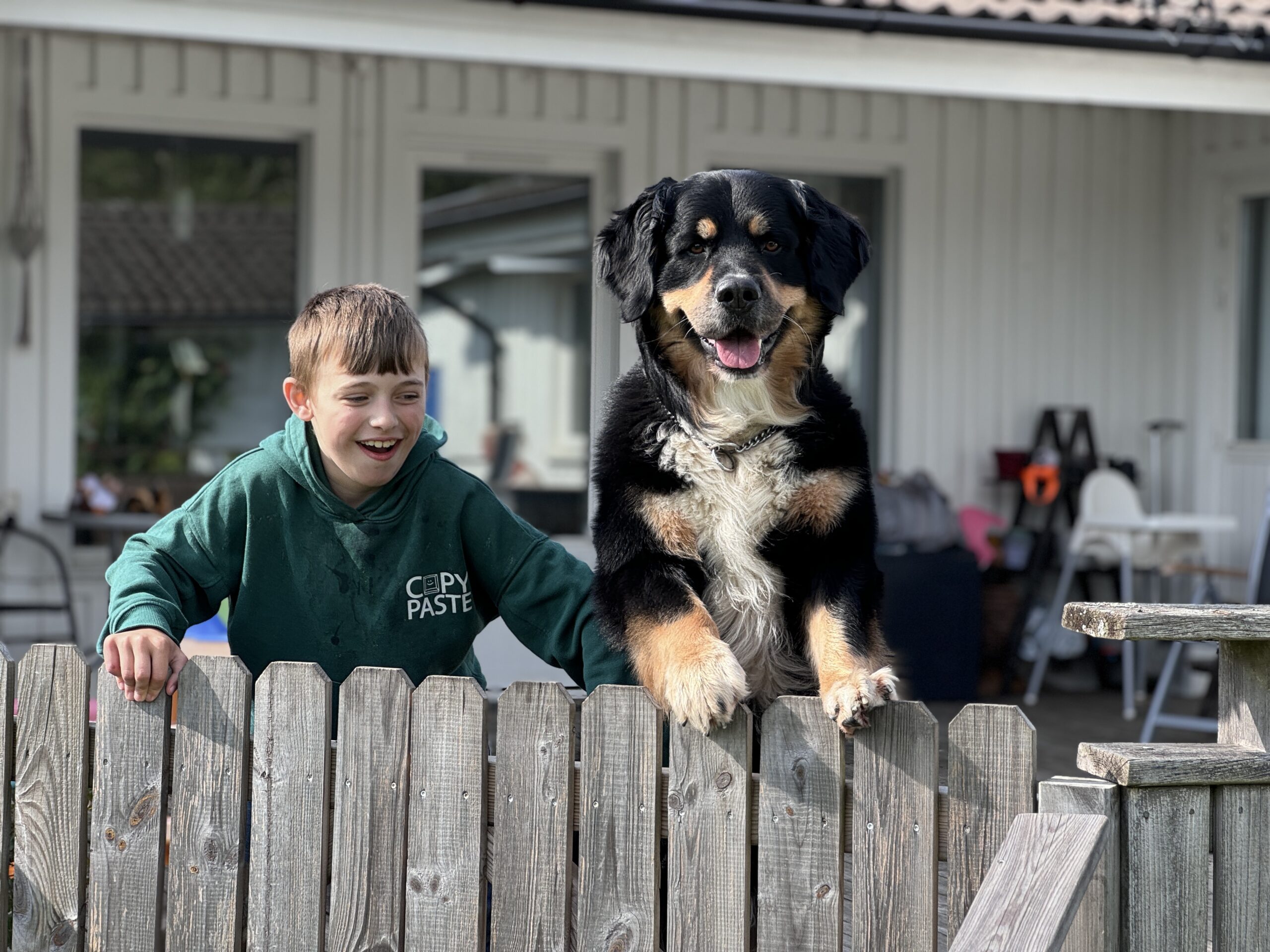
Over time, the family has made five visits from Sweden to The Inn. While traveling internationally with young children is always a challenge, the frenetic energy of that first trip has, thankfully, not been repeated. Now, there is also a fourth child to ferry across the ocean – 18-month-old William. However, for Niclas and Jessica, each trip remains a reminder of the race against the clock, which they are still running.
The children underwent two weeks of appointments on their most recent visit to check their physical and mental development. GM1 has left them unable to speak or move without assistance and difficulty, but they still find ways to simply be kids. Now seven, Isabella loves to sing, and Julia loves books. Hampus, now nine, loves cars and trucks and drawing. Together, the siblings enjoy playing “hospital,” mimicking the real-world situations they have encountered so often.
Though there is still no known cure for GM1, the trial has brought successes and, most importantly, bought Niclas and Jessica some time.
“They have stabilized,” Niclas explained. “They are growing taller, so it’s becoming more difficult for them to move. But with their diagnosis, we’d expect a much bigger drop [in their development], and we have not seen that. So that’s a big positive.”
At home, the three children go to a special needs school, where they spend eight hours each day getting individualized attention tailored to their mental and physical capabilities. They also have a pair of Swedish medical teams—one local and one more regional—that complement the work done at the NIH.
At The Inn, Mom and Dad are always on the job, but the environment allows them a similar chance to take stock amidst the ongoing struggle.
“It makes such a big difference to be at The Children’s Inn,” Niclas said. “This place is really amazing for kids. The playground and the playroom, especially, have made it such a great place to stay. And the first time especially, we were staying for so long. It feels like our home in the U.S. The vicinity to the hospital is also really great. It takes five minutes for us to see their doctors.”
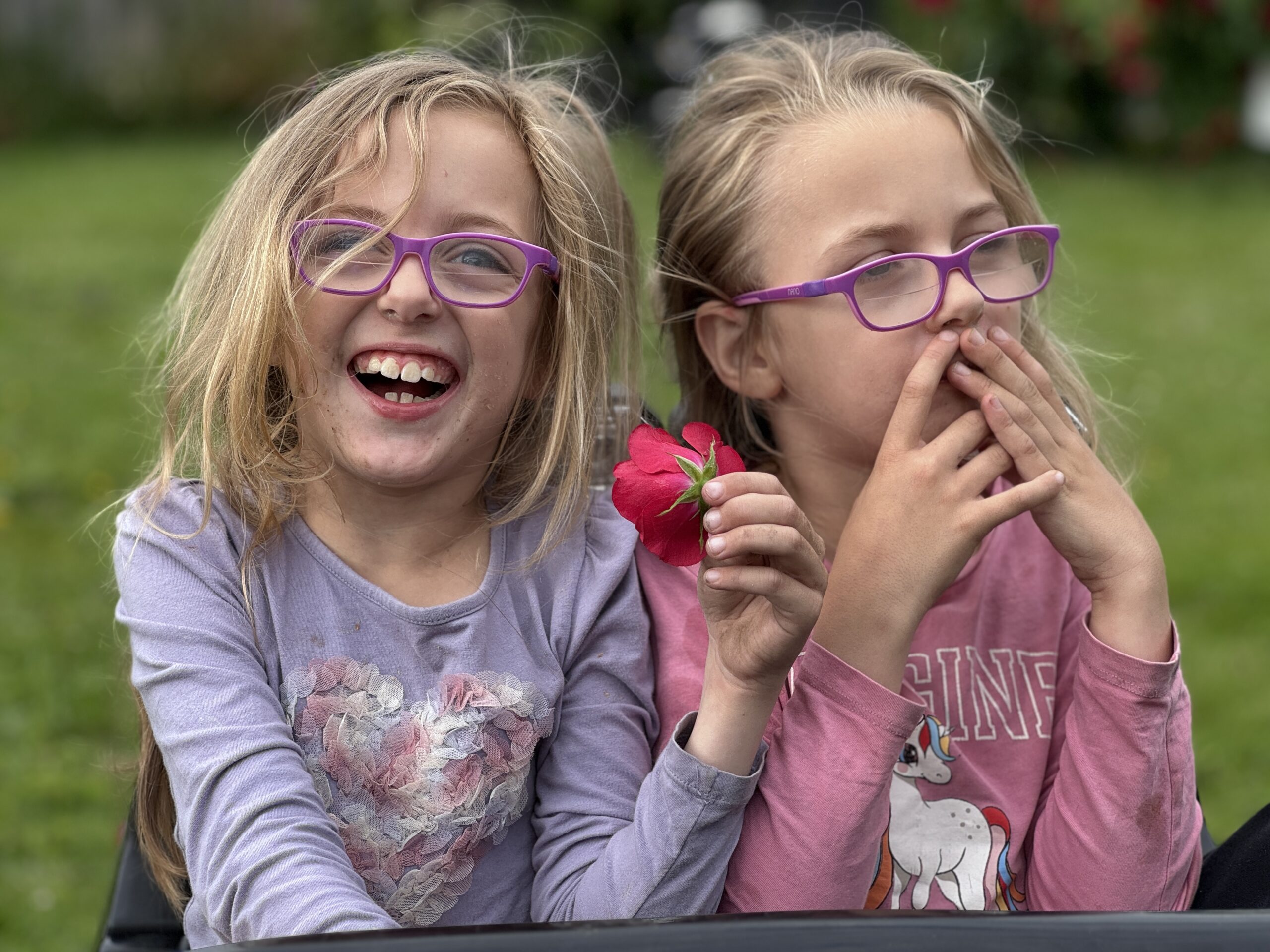
The existing study that Hampus, Isabella, and Julia are in will conclude next year. However, doctors hope to extend the trial into another phase, a decision that will be influenced by the data gathered from studying the three kids.
The uncertainty leaves Niclas and Jessica uncertain about what will come next but optimistic that their involvement in the NHGRI trial will pay off in the long run.
“Everything is new ground here,” observed Niclas. “We don’t really know what to expect. Over time, there have been some regressions and some progressions. It’s a little bit of give and take. But I think if you compare it to what we expected when we got their diagnosis, things would be much worse than they are right now. Hampus would be having seizures and things like that. We haven’t seen any of that. This has bought us a lot more time with them, and hopefully, that means there will be other treatments available down the road. There is always a lot of research going on.”
It has not always been easy, and the marathon remains in progress. However, buying time is important for Niclas, Jessica, and their family. As long as they can keep doing that, they have faith that the victory they seek is waiting for them somewhere down the road.
